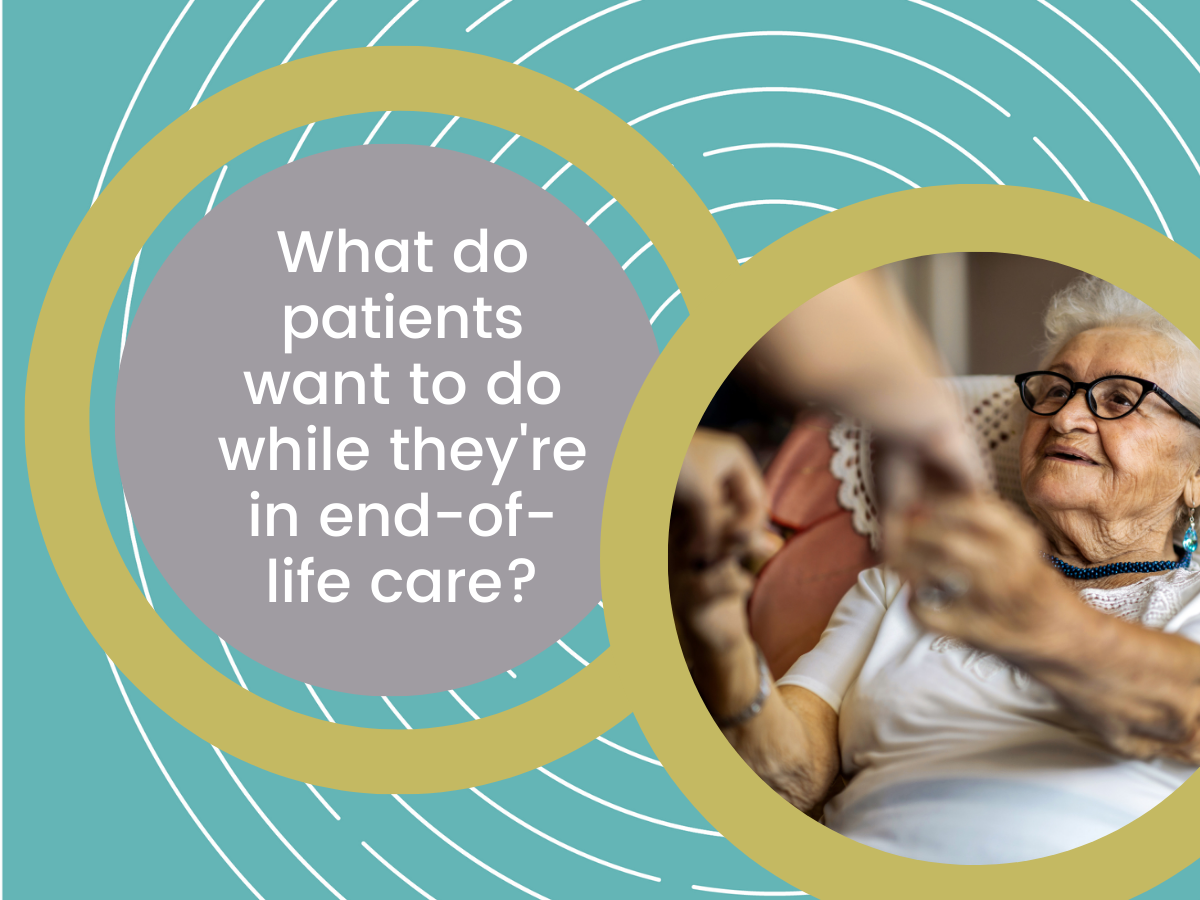Author Rick Warren wrote, “The greatest gift you can give someone is your time.” While patients receiving hospice care may say they appreciate gifts like cards or food, many agree that what they really want is quality time with you and their other loved ones.
Note that what they’re looking for is quality time — not necessarily more time. Patients often know they only have a few months left to live, at most, and so their goal isn’t to keep living. They want to see and talk with family and friends while they still can.
When a patient starts receiving Centrica Care Navigators services, their family is given a Hospice Information Booklet and other materials, where they can record contact information for our staff and take notes during care of their loved one. The booklet also describes what each member of our team does, and provides general safety guidelines.
The booklet starts by discussing the basics. These are simple things any caregiver can do and every patient wants, just to feel like there are people who want to make sure they are as comfortable and well-treated as they can be.
· Speak slowly and clearly.
· Reassure your loved one that he or she is not alone.
· Do not leave him or her alone for prolonged periods.
· Do not be afraid to touch your loved one. Your touch assures him or her that you care.
· Allow your loved one to sleep as much as he or she wants.
· Help plan rest periods to save energy for important things.
Still want to take part
Just because someone is in hospice care and is moving and reacting more slowly than before doesn’t mean they don’t want to participate in activities. Researchers found that patients want to “alleviate fears of pain, suffering, and loneliness,” according to a report in the Canadian Medical Association Journal.
“Patients also crave being touched, both physically and emotionally — perhaps to be reminded that they are still living, perhaps because family and friends often distance themselves as a disease progresses toward death,” the report says.
Activities many patients enjoy include working with their hands (for example, coloring, completing a puzzle, or knitting), listening to music — which is one reason why we have music therapists — or simply having a conversation about what’s happening in their family, or what they remember about their younger days.
Some people are more comfortable not talking. They would rather write about how they’re feeling, or not want to discuss their emotions at all.
Let them lead
Kim Westrate, a volunteer who has been visiting with patients for about 10 years, says the best times she has spent with patients is when they take the lead. You can suggest an activity like making a craft or reading a book, but if your loved one is too tired for those things, they’ll probably say so.
“They are good at being honest,” she says. “They’ll tell you how much they want to talk. Sometimes they just want to listen to music, or they’ll say, ‘Can you read to me?’ I tell people it is OK if they fall asleep while I’m there. I take it as a compliment that they’re comfortable enough with me there to fall asleep.”
In short, patients want the same kind of attention that anyone would appreciate. Patients in Centrica Care Navigators hospice care are receiving compassionate care that focuses on their healthcare needs. What they want from you is time — time to know how important they are to you.
You can learn more by exploring our website or calling Centrica Care Navigators at 269.345.0273.




